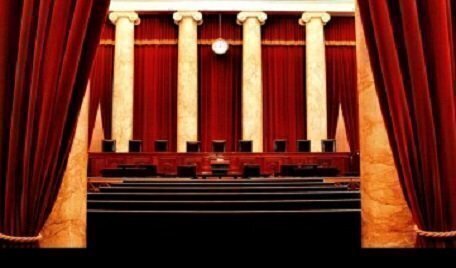A divided Supreme Court said on Wednesday that public-sector employees who don’t belong to unions can’t be forced to pay union contract-negotiating fees.
 In Janus v. American Federation, Justice Samuel Alito said that “states and public-sector unions may no longer extract agency fees from nonconsenting employees.” Non-union members are required to pay agency fees in public workplaces to cover contract negotiation costs.
In Janus v. American Federation, Justice Samuel Alito said that “states and public-sector unions may no longer extract agency fees from nonconsenting employees.” Non-union members are required to pay agency fees in public workplaces to cover contract negotiation costs.
“The First Amendment is violated when money is taken from nonconsenting employees for a public-sector union; employees must choose to support the union before anything is taken from them,” Alito said. “Accordingly, neither an agency fee nor any other form of payment to a public-sector union may be deducted from an employee, nor may any other attempt be made to collect such a payment, unless the employee affirmatively consents to pay.”
In 1977, the Court said unions could charge such fees. In Abood v. Detroit Board of Education, Justice Potter Stewart said that public-sector workers could be compelled to "support legitimate, non-ideological, union activities germane to collective-bargaining representation.” The Abood Court said that a state could balance managing its employees and labor interests to avoid “free rider” situations where non-union workers benefited from a union’s advocacy for pay raises and other benefits without paying for the negotiation process.
The Court’s decision today effectively overturns the Abood decision.
The Janus case was about the Illinois Public Labor Relations Act, which requires all employees working at a public agency or public organization to pay a fee for unions to negotiate contracts, even if some employees don’t belong to unions. To union officials, any decision overturning Abood was seen as a direct threat to the existence of public unions. Abood’s opponents viewed it as an unconstitutional restraint on free speech and association.
In their dissent, the Court’s liberal Justices criticized the majority decision. “Today, the Court succeeds in its 6-year campaign to reverse Abood,” said Justice Elena Kagan. “Its decision will have large-scale consequences. Public employee unions will lose a secure source of financial support. State and local governments that thought fair-share provisions furthered their interests will need to find new ways of managing their workforces. Across the country, the relationships of public employees and employers will alter in both predictable and wholly unexpected ways.”






